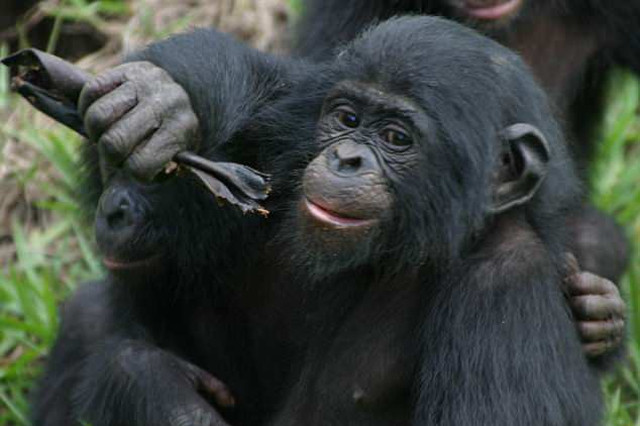Some animals are more polite ... people when communicating
New research by an international team of scientists found that some animals are more polite than humans.
This is the work of scientists at York University and Sheffield, Max Planck Institute for Evolutionary Anthropology in Germany and Max Planck Institute for Psychological Languages in the Netherlands.
They found that in some animals, they showed more patience and respect for their partners than they were talking to.
The authors of the study emphasize timeliness as the key to waiting for their turn in communication in both people and animals.

People are not the only species who hate others "jumping into the throat" while talking - (Photo: SIMONE PIKA).
A number of "snapping" species, such as some birds, often wait less than 50 milliseconds (one millisecond equal to 1 / 1000th of a second) immediately "responding" while "dialogue" with others.
Meanwhile, sperm whales are quite slow to respond when communicating with others. Usually they will take about 2 seconds between such responses.
People are the species that has a response time in communication that falls between the two very fast - slow ones. People generally stop about 200 milliseconds before responding in a conversation.
It is also interesting to note that it is not only rude to believe that it is rude to "jump into the throat" of others while speaking.
Both the black-headed corn finches and the European rock flute have a "intervening" way of communicating, while another of their fellow species is "talking" , the behavior that researchers call "avoiding overlapping." " in communication.
The researchers describe this interesting phenomenon in a scientific report published in Roy Society B: "Biological Sciences:" If overlap occurs, individuals will remain silent or fly away, this shows intervening while communicating in this species may be considered a violation of the generally accepted principles of species waiting for turn. "
Also from this group, the team realized how animal communication was not fully understood regardless of the fact that there were studies of birds 50 years ago.
The lack of research data and lack of communication between scientists has made it difficult to directly compare this aspect of communication between different species, according to the Daily Mail (UK).
- More fun by talking to strangers
- The mystery surrounding 'equipment communicating with the dead' of Dr. Edison
- Secrets of the sea: Sounds and sea creatures
- Time yawned reveals human intelligence
- Why do dogs often tilt their ears when they hear people talking?
- Why shouldn't we suppress sneezing?
- The female knows to stop adultery
- CyberLove - virus comes from virtual love
- People who like communication have bigger brains
- The sign helps to recognize
- Science explains the difference between humans and animals
- People need to use both hemispheres to communicate
 Animal 'suffering' after hibernation
Animal 'suffering' after hibernation Why do goats climb well?
Why do goats climb well? Scientists were surprised to see chimpanzees eating turtles
Scientists were surprised to see chimpanzees eating turtles Giant catfish died deadly due to drought in Thailand
Giant catfish died deadly due to drought in Thailand